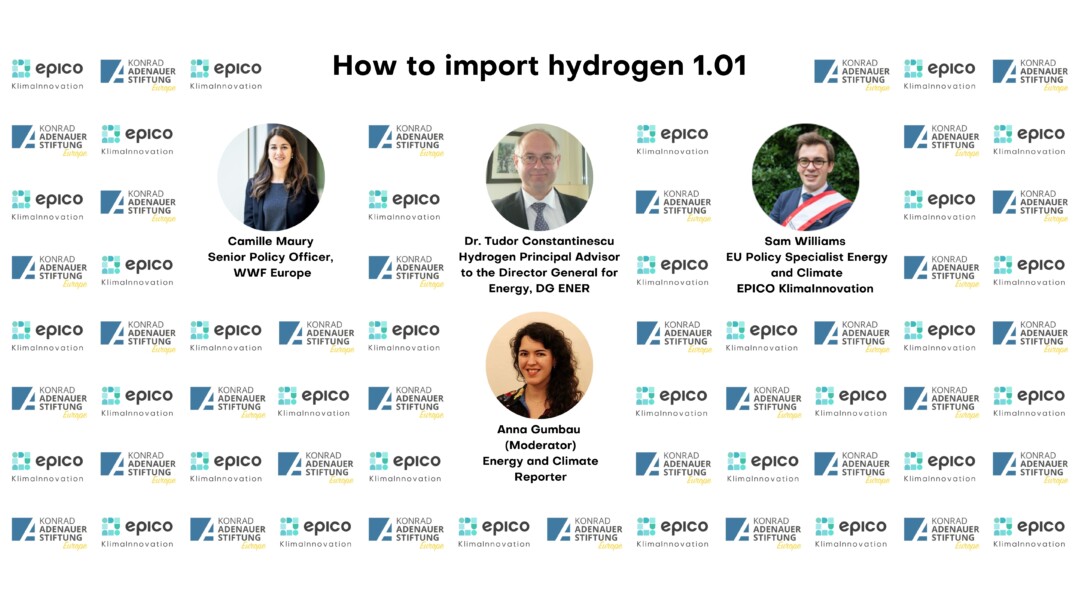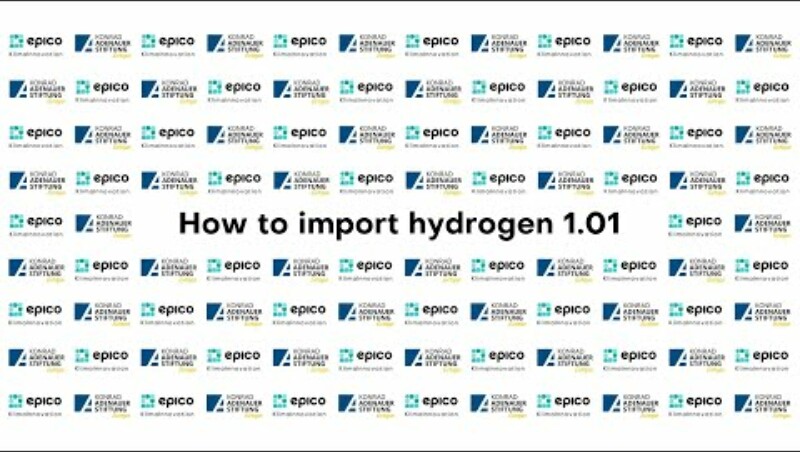As part of the European Green Deal, the EU set the goal of reducing its greenhouse gas (GHG) emissions by at least 55% by 2030 and achieving climate neutrality by 2050. Over the past decades, the EU has been focusing on deploying renewable sources of electricity and driving the electrification of energy-intensive sectors. While this approach remains central to the EU's climate strategy, this alone will not be enough to achieve climate neutrality by 2050. The Russian war on Ukraine and resulting decimation of Russian gas imports also highlighted the EU’s need to further differentiate its energy mix.
Hydrogen has therefore become a key piece of the puzzle to help Europe meet its climate targets. However, the EU will not be able to domestically produce a substantial part of the green hydrogen it needs in the medium to long term. In its recently adopted REPowerEU plan, the European Commission estimates the import demand for green hydrogen at 10 million tons by 2030.
In partnership with the European office of the Konrad Adenauer Stiftung, EPICO KlimaInnovation held a hybrid event on the topic of EU hydrogen imports. The discussion started off with Dr. Tudor Constaninescu, Hydrogen Principal Advisor to the Director General for Energy, DG ENER, explaining the current policy and actions being undertaken on hydrogen by the European Union. He highlighted the importance of developing infrastructure parallel to international partnerships, regulations and domestic production. WWF Europe’s Senior Policy Officer Ms. Camille Maury stressed the social and environmental challenges, such as water scarcity and energy poverty, that come along with hydrogen imports, leading to a possible negative impact on the exporting countries. EPICO’s EU Policy Specialist Energy and Climate, Mr. Sam Williams, discussed the findings of EPICO’s latest report, “Design Options for a European Hydrogen Bank”. He evaluated market mechanisms, double-sided auctions, supply- or demand- side auctions, and default guarantees, also highlighted the importance of creating a market that is long-lasting and sustainable. Panellists agreed on the need to develop a robust infrastructure network, built on a sustainable and just basis that ensures local ownership of third-country hydrogen exporters and safeguards land use and water.
Panellists

Watch the recording of the panel discussion.

External Content from YouTube
Please see the privacy policy of YouTube if you are loading external content.
External Content from epico
Please see the privacy policy of epico if you are loading external content.
